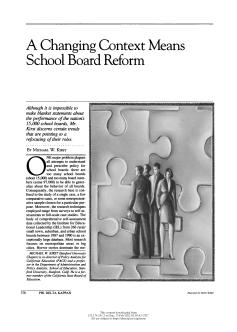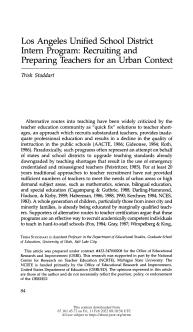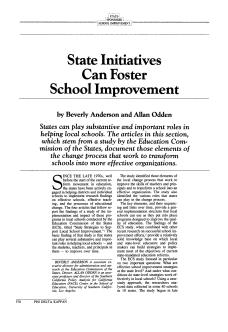Published
Summary
The research base for understanding and prescribing policy for school boards is limited due to the large number of boards and members. Common school boards, especially those of small districts, are less researched. To address this, overall trends affecting most boards should be analyzed to determine the need for and direction of school board reform. Waiting for representative data on all boards will delay improvements to policy making. Major changes in school board roles, functions, and operations are necessary due to the interaction of these trends.
Recruiting and Preparing Teachers for an Urban Context
Published
Summary
This article discusses the criticism of alternative routes to teaching, which are seen as inadequate and leading to declining instructional quality, but are attempting to address the shortage of qualified teachers in urban and high demand subject areas. Supporters argue that they are effective in recruiting competent teachers for hard-to-staff schools and replacing the emergency credential system with rigorous training. The article highlights the impact of teacher shortages on inner city and minority students who are currently being educated by marginally qualified teachers.
Published
Summary
States can help local schools improve by implementing effective school improvement strategies. A study by the Education Commission of the States (ECS) identified key elements that can transform schools into more effective organizations, and various roles that states can play in the change process. The study analyzed data collected in 40 schools in 10 states, providing a solid knowledge base for implementing state-mandated education reforms. Effective strategies and conditions for success were studied using a case-study approach. The study began in late 1983 and was completed in early 1985.


